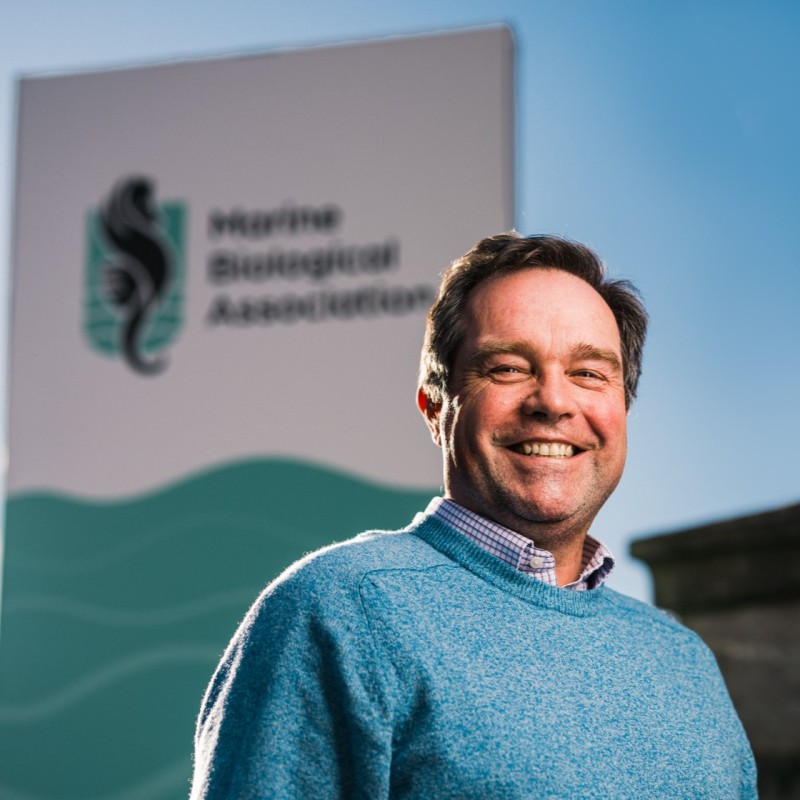“To safeguard the ocean is to safeguard humankind,” says Professor Willie Wilson, Chief Executive of The Marine Biological Association and Chapter Author of FMRI’s latest report: ‘A UK Science Requirements Framework for Future Marine Research Infrastructure’.
The recently published framework, developed through extensive consultation with the UK ocean science community, defines the outcomes and infrastructure needed to enable world-class marine science. It sets out a clear, evidence-based foundation to guide future investment - supporting the research essential to addressing some of the most urgent challenges facing our ocean.
Professor Wilson shares his insights on 'Protecting Biodiversity and Ocean Health' - one of five chapters exploring the framework’s Marine Science Grand Challenges.
“The ocean is not merely a vast expanse of water, it is the living pulse of our planet, a cradle of biodiversity shaped by four billion years of evolution. Today, this pulse is threatened by the accelerating pressures of human activity and climate change. Yet within this challenge lies a profound opportunity: to transform our relationship with the ocean from exploitation to stewardship. We stand at a pivotal moment in time, where science, technology, and global collaboration converge to illuminate the hidden depths of marine life, from the microbes and plankton that fuel the carbon cycle to the enigmatic animals of the deep ocean. Through sustained observation, genomic exploration, and digital innovation, we can decode the language of the ocean and restore its health. To protect biodiversity is to safeguard the resilience of ecosystems, the security of food, the stability of climate, and the legacy of life itself. It demands bold investment, inclusive partnerships, and a commitment to equity; ensuring that knowledge and benefits flow across borders and generations.”
Chapter Overview: ‘Protecting Biodiversity and Ocean Health’

Unfortunately, we are witnessing the acceleration of biodiversity loss due to overexploitation (primarily fishing), pollution, climate change and habitat degradation. Consequently, marine ecosystems vital to global food security, climate regulation and economic prosperity are under increasing pressure.
The Role of Transformative Research
This chapter highlights how transformative scientific research is essential to reversing these trends, from understanding ecosystem function and species distribution, to developing innovative technologies for monitoring and restoration.
UK Leadership in Marine Science
It details the UK’s leadership in long-term biodiversity surveys, genomic initiatives, and international conservation efforts, while emphasising the need for enhanced observational infrastructure, digital integration, and interdisciplinary collaboration.
Advancements in Monitoring Technology
Emerging autonomous tools for detection and analysis of eDNA will give unprecedented data granularity of essential biodiversity variables (EBVs) that will help us understand and manage ocean ecosystems more effectively. In addition, research vessels in combination with autonomous platforms and AI-driven analytics are revolutionising our capacity to observe and model marine life across spatial and temporal scales, from coastal zones to the deep sea; from seconds to decades.
A Call for Bold Investment
Yet, significant knowledge gaps remain, particularly in under-sampled regions and in understanding ecological resilience and tipping points. The chapter calls for bold and sustained investment in marine biological observation capabilities; sensors and platforms; data management and advanced analytics; and strategic world-class hub and spoke partnerships.
Marine Science as a Strategic Asset
All this in combination will ensure effective solutions-driven science that will provide the knowledge frameworks to interpret impacts of projected environmental change, critically, allowing informed decision-making. Ultimately, it positions marine science not only as a foundation for environmental stewardship but also as a strategic asset for national and international governance, climate adaptation, and the sustainable future of our planet.
The FMRI programme team warmly invites members of the UK marine research community to an online presentation of the Framework with Lead Author, Professor Alex David Rogers, and an opportunity to ask questions on Monday 22 September at 10.00am (UK time).
Register for the Webinar.
Download the Full Report.
Download the Summary Report.
- Log in to post comments